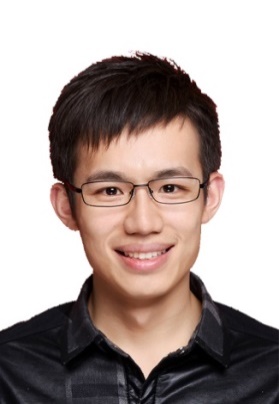 Xiaoguang LI, Ph.D., Professor
Xiaoguang LI, Ph.D., Professor
School of Public Health
Shanghai Jiao Tong University School of Medicine
Phone: +86-21-63846590
Email:lixg@shsmu.edu.cn
https://www.shsmu.edu.cn/sph/info/1075/1142.htm
Prof. Li obtained Ph.D. (Biochemistry and Molecular Biology) from Shanghai Institutes for Biological Sciences (SIBS), Chinese Acdemic of Sciences (CAS), and completed the postdoctoral/preclinical pharmacology and immunology fellowship at SIBS, CAS, China and UT Southwestern Medical Center, Dallas, USA, respectively. In the end of 2016, he joined in School of Public health, Shanghai Jiao Tong University School of Medicine and exceptionally promoted to full Professor and PhD student Supervisor. Prof. Li’s research focused on Cancer Etiology, Molecular Pharmacology, and Targeted Therapy and resulted in more than 20 peer-reviewed papers.(Nature Genetics, Gut, Nature Communications, Clin Cancer Res, EBiomedicine, etc.) and has filed 6 patents (4 granted). Prof. Li has been awarded research grants and awards from National Natural Science Foundation, the Ministry of Science and Technology of China, Chinese Academy of Sciences, among others. Prof. Li was elected as Shanghai Young Talent Scholar from Organization Department of Party Committee of Shanghai, and Young Eastern Scholar from the Shanghai Municipal Education Commission, and was awarded Pujiang Scholars from the Science and Technology Commission of Shanghai.
Research Interests:
1) Finding novel chemoprevetion and therapeutic targets of Gastrointestinal Cancer in tumor cell itself and tumor microenvironments (ERBB, PDGFRA, CCR2, NQO1 etc.).
2) Investigate the physiological effects of tumor microenvironment on the tumor cells at distinct stages of tumorigenesis and to elucidate the molecular mechanisms involved in the cell-cell communication among cancer cells and surrounding stromal cells.
Selected Publications:
1.Li X, Liu Z, Zhang A, Han C, Shen A, Bothman D, Qiao J, Wang Y, Huang X, Fu Y. NQO1-based tumor targeting prodrug triggers innate sensing to overcome checkpoint blockade resistance.Nat Commun10(1):3251,2019 (First author, IF=12.35).
2.Li X, Yao W, Yuan Y, Chen P, Li B, Li J, Chu R, Song H, Xie D, Jiang X, Wang H. Targeting of tumour-infiltrating macrophages via CCL2/CCR2 signalling as a therapeutic strategy against hepatocellular carcinoma.GUT. 66(1):157-167,2017.(First author, IF=17.02).
3.Li X, Zhou Y, Liu Y, Zhang X, Chen T, Chen K, Ba Q, Li J, Liu H, Wang H. Preclinical Efficacy and Safety Assessment of Artemisinin-Chemotherapeutic Agent Conjugates for Ovarian Cancer.EBioMedicine14:44-54,2016. (First author, IF=6.18).
4.Li M*, Zhang Z*,Li X*,Ye J, Wu X, Tan Z, et al. Whole-exome and targeted gene sequencing of gallbladder carcinoma identifies recurrent mutations in the ErbB pathway.Nat Genet46 (8): 872-6, 2014.(First author, IF=29.65)
5.Li X, Ba Q, Liu Y, Yue Q, Chen P, Li J, Zhang H, Ying H, Ding Q, Song H, Liu H, Zhang RWang HDihydroartemisinin selectively inhibits PDGFRα-positive ovarian cancer growth and metastasis through inducing degradation of PDGFRα protein.Cell Discovery2017 Nov21;3:17042. (First author, IF=4.6)
6.Li X, Yang X, Liu Y, Gong N, Yao W, Chen P, et al. Japonicone A suppresses growth of Burkitt lymphoma cells through its effect on NF-κB.Clin Cancer Res1;19(11):2917-28, 2013.(First author, IF=8.19)
7.Li X, Chen T, Lin S, Zhao J, Chen P, Ba Q, et al.Valeriana jatamansi constituent IVHD-valtrate as a novel therapeutic agent to human ovarian cancer: in vitro and in vivo activities and mechanisms.Curr Cancer Drug Targets13(4):472-83, 2013.(First author, IF=3.58)
8.Yao W, Ba Q,Li X, Li H, Zhang S, Yuan Y, Wang F, Duan X, Li J, Zhang W, Wang H.A Natural CCR2 Antagonist Relieves Tumor-associated Macrophage-mediated Immunosuppression to Produce a Therapeutic Effect for Liver Cancer.EBioMedicine.22:58-67,2017.
9.Ba Q,Li X, Huang C, Li J, Fu Y, Chen P, Duan J, Hao M, Zhang Y, Li J, Sun C, Ying H, Song H, Zhang R, Shen Z, Wang H.BCCIPβ modulates the ribosomal and extraribosomal function of S7 through a direct interaction.J Mol Cell Biol1;9(3):209-219,2017.
10.Chen P, Li B, Zhu Y, Chen W, Liu X, Li M, Duan X, Yi B, Wang J, Liu C, Luo X,Li X, Li J, Liang L, Yin X, Wang H, Jiang X.Establishment and validation of a prognostic nomogram for patients with resectable perihilar cholangiocarcinoma.Oncotarget. 14;7(24):37319-37330,2016.
11.Chen P, Li C,Li X, Li J, Chu R, and Wang H. Higher dietary folate intake reduces the breast cancer risk: a systematic review and meta-analysis.BritJCancer.doi:10.1038/bjc.155 2014.
12.Liu Y, Li C, Chen P,Li X, Li M, Guo H, et al. Polymorphisms in the vitamin D Receptor (VDR) and the risk of ovarian cancer: a meta-analysis.PLoS One24;8(6):e66716, 2013.
13.Li C, Chen P, Hu P, Li M,Li X, Guo H, et al.Folate intake and MTHFR polymorphism C677T is not associated with ovarian cancer risk: evidence from the meta-analysis.Mol Biol Rep40(12):6547-60, 2013.
14.Chen P, Li M, Gu X, Liu Y,Li X, Li C, et al.Higher blood 25(OH)D level may reduce the breast cancer risk: evidence from a Chinese population based case-control study and meta-analysis of the observational studies.PLoS One8(1):e49312, 2013.
15.Duan J, Ba Q, Wang Z, Hao M,Li X, Hu P, et al. Knockdown of ribosomal protein S7 causes developmental abnormalities via p53 dependent and independent pathways in zebrafish.Int J Biochem Cell Biol43(8):1218-27, 2011.
16.Chen T, Xu Y, Guo H, Liu Y, Hu P, Yang X,Li X, Ge S, Velu SE, Nadkarni DH, Wang W, Zhang R, Wang H.Experimental therapy of ovarian cancer with synthetic makaluvamine analog: in vitro and in vivo anticancer activity and molecular mechanisms of action.PLoS One6(6):e20729. doi: 10.1371, 2011.